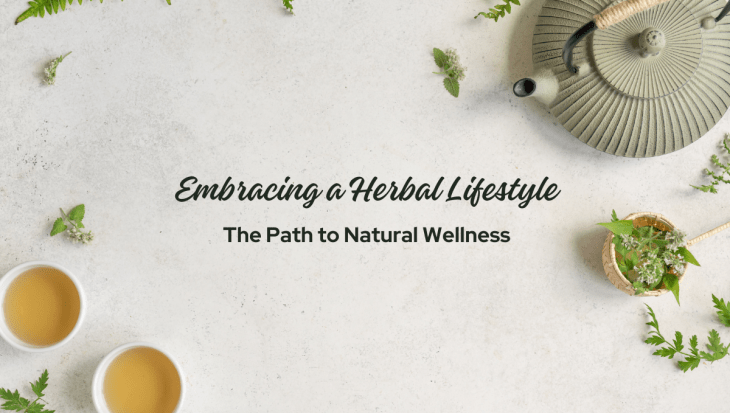Embracing a Herbal Lifestyle: The Path to Natural Wellness
In an era where synthetic solutions and quick fixes dominate the wellness industry, a growing number of individuals are turning to ancient practices and natural remedies to nurture their health. Embracing a herbal lifestyle offers a holistic approach to wellness, harnessing the power of plants to heal, nourish, and balance the body and mind.
The Essence of a Herbal Lifestyle
A herbal lifestyle is rooted in the use of medicinal plants and herbs to promote health and prevent disease. This approach taps into the wisdom of traditional medicine systems like Ayurveda, Traditional Chinese Medicine (TCM), and Native American healing practices, which have utilized herbs for centuries. By incorporating herbs into daily routines, individuals can support their physical, mental, and emotional well-being naturally.
Benefits of a Herbal Lifestyle
- Natural Healing: Herbs have potent medicinal properties that can address a wide range of health issues, from common colds to chronic conditions. For example, Echinacea boosts the immune system, while Turmeric has powerful anti-inflammatory effects.
- Holistic Wellness: Unlike conventional medicine, which often targets specific symptoms, a herbal lifestyle emphasizes overall wellness. Herbs work synergistically to restore balance and harmony within the body.
- Fewer Side Effects: When used appropriately, herbs typically have fewer side effects compared to pharmaceutical drugs. This makes them a safer alternative for long-term health management.
- Sustainable and Eco-Friendly: Growing your own herbs or sourcing them from sustainable producers reduces the environmental impact associated with synthetic drugs. This promotes a healthier planet alongside personal health.
Incorporating Herbs into Daily Life
- Herbal Teas: Start your day with a cup of herbal tea. Chamomile tea can soothe anxiety and aid sleep, while green tea provides a gentle energy boost and is rich in antioxidants.
- Culinary Herbs: Enhance your meals with fresh or dried herbs. Basil, oregano, and thyme not only add flavor but also offer various health benefits, including improved digestion and anti-inflammatory properties.
- Herbal Supplements: For specific health needs, consider herbal supplements. Adaptogens like Ashwagandha and Rhodiola can help the body adapt to stress and improve resilience.
- Topical Applications: Use herbal-infused oils and creams for skincare. Calendula can soothe irritated skin, and Aloe Vera is excellent for burns and hydration.
- Aromatherapy: Incorporate essential oils into your routine for their therapeutic benefits. Lavender oil promotes relaxation, while Peppermint oil can alleviate headaches and enhance concentration.
Creating Your Herbal Garden
Growing your own herbs is a rewarding way to embrace a herbal lifestyle. Here are some steps to get started:
- Choose Your Herbs: Select herbs based on your needs and climate. Popular choices include Basil, Mint, Rosemary, and Sage.
- Find the Right Spot: Herbs need plenty of sunlight. Choose a sunny spot in your garden or place pots on a windowsill that gets at least six hours of sunlight daily.
- Use Quality Soil: Ensure your herbs thrive by using well-draining soil rich in organic matter.
- Water Wisely: Herbs generally prefer moderate watering. Over-watering can lead to root rot, so allow the soil to dry out slightly between waterings.
- Harvest Regularly: Regular harvesting encourages growth. Use sharp scissors to trim the herbs, and use fresh or dry them for later use.













Leave a Reply